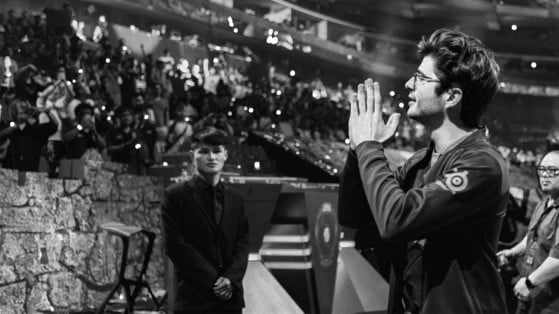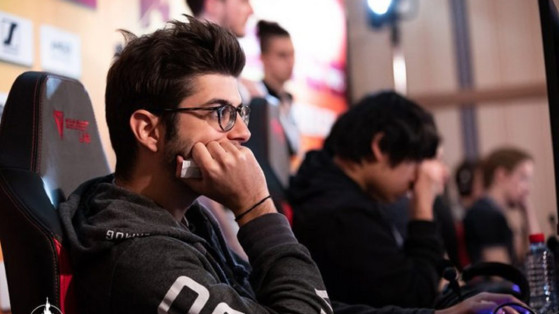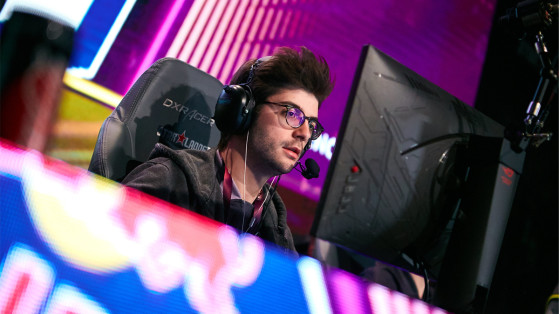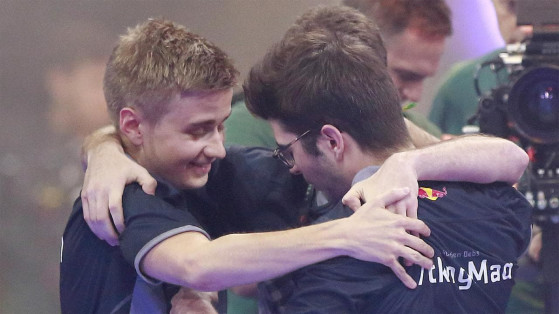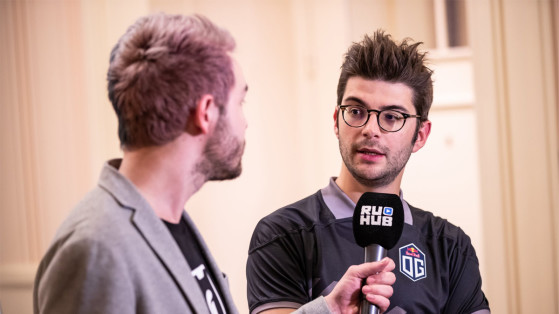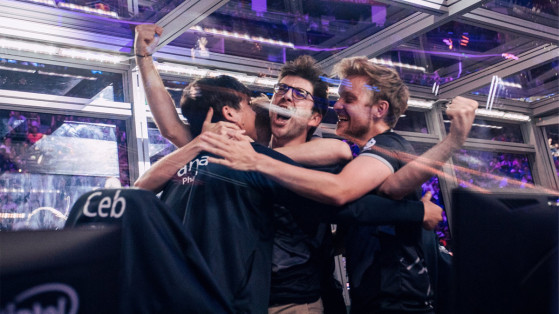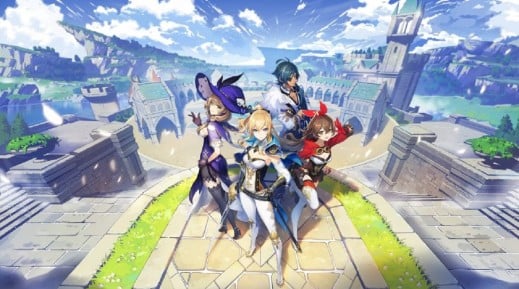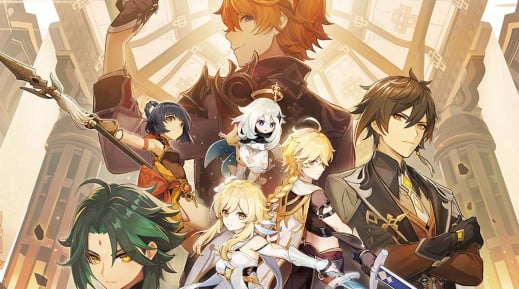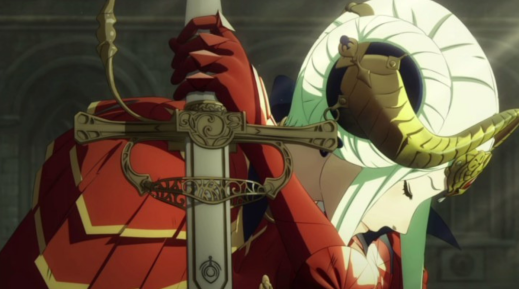A lot of people are unable to understand Dota, and they complain about that. It’s actually pretty simple — let me explain.
Had I listened when people told me to quit, I would have quit a million times. Some of them were close; others, distant.
I think we all know, deep down, whether we have what it takes, if we listen to that internal voice we all have, and if we question ourselves—always.
One has to work on themselves, and to be open to criticism, but not to allow critics and criticism to swallow you whole.
One has to be humble and determined not to let go; only let go when the time is right, because there is no shame in saying out loud: “I have failed.”
As long as they know that it is possible, they can keep at it through thick and thin. Calm seas never made for skilled sailors.
I have made all of those sacrifices, and all the sacrifices that I could.
I missed out on a lot in my early adult years, and as I grew into an adult; mind you, there is still some way to go. I’m about to turn 28 this year, but here is something for you to know: ever since I was 18, I have devoted my life to Dota. Only Dota.
I chose this life, and I chose to make those sacrifices. Here, again, for anyone aspiring to become a pro, you have to dedicate your life to it. And I’m not saying this lightly: your life is all about Dota, and only Dota.
Anything you do on the side needs to have a purpose: to provide a balance, which in turn helps reaching your goals. Side activities are a tool; I know, it’s hard to hear that.
I don’t sleep because I like sleeping, but to have enough rest. If science proves that going sleepless is beneficial, I will no longer sleep. Likewise, if there is proof that seeing my teammates is detrimental to my performance, I will no longer see them.
If you want to be the best, you have to have this mindset. I don’t believe anyone who says “I barely work at it, and I’m succeeding.” That couldn’t be farther from the truth.
It all started in 2010—or was it 2011?—out of a misunderstanding with a high-school friend.
I used to play Dota with him from time to time, and we spent a lot of time together after our school days because we lived close to one another.
In the beginning, it was just banter among us, but I kept playing more and more, and I ended up playing way too much. I ended up developing an obsession for self-improvement in Dota.
A long time after that—five, six years of Dota later—I tried League of Legends. I’m assuming that I share this opinion with people who try Dota after playing LoL, but the other way around: I thought it was too “easy/simplistic,” and that it wasn’t complex enough technically. So, I really didn’t like it.
Dota was insanely complex when I started playing it. Nowadays, it’s a lot more accessible. Some heroes are extremely hard to play unless you have have StarCraft-player levels of micro, or something like that. Playing them is one thing, but there’s no way you’d master them otherwise.
Some heroes in Dota require all-encompassing micro skills, with me sometimes managing six or seven units at a time. But people explain that champions that control lots of units don’t exist in LoL.
Also, a good lane matchup in League of Legends usually means winning your lane. In Dota, I could still obliterate whoever is facing me if they aren’t as skilled, even in the worst possible matchups.
As a game, Dota provides a wealth of experiences.
Skill has a much bigger impact on a Dota game than on LoL. On a good day, you might not be able to win a game solo, but you’re going to have a massive impact. Just like in CS:GO in some way, if your teammate can capitalize on the openings you create, you’re going to be the difference maker.
I’ve been playing Dota for 10 years; I've invested every ounce of ability and potential I have. I am way too deep in it. Even then, I’m still learning new things, year-by-year. For example, I happen to learn to counter everything I was doing the year before.
Even without computer access, the game would sustain me as a person, if only because of its game theory.
Granted, Dota isn’t the number one game in France. But in the countries I visit, it is: Russia, a lot of Southeast Asian countries, China, even the United States, Brazil and Peru. It’s just that massive.
There seem to be epicenters of some sort for the game, and I’m not going to ask myself questions about why the game is successful in some countries.
So you’re asking me a question: “Why is it not as successful in France?”
Honestly, I think it’s just bad circumstances piling up on one another. Back when I started, there were so many talented Dota players—a huge wellspring of prospects. But few organizations took the leap of faith. I faced those circumstances, sometimes brutally.
When it comes to risk-taking and entrepreneurship, we have ways to go. One guy told me: “My return on investment won’t be good enough. I’m not going in.” There was no International at the time.
I kept repeating the same refrain like a broken record, every time that happened. “You might not notice how mistaken you are. Dota will explode in popularity. A team is only going to cost a few thousand euros, you know?”
How far we’ve come: a Tier 1 team’s budget is in the millions of euros nowadays. Organizations went to other countries and consolidated the scene. It could’ve been us, I’m certain of it.
But because of that reluctance, players felt discouraged, and they went to games that seemed more “lucrative:” either CS:GO, which wasn’t out yet at the time, or League of Legends. First come, first served.
The growth of a scene stems from a virtuous cycle. Professional teams and organizations shine in tournaments, then young players get involved and grow into talent that allows teams and organizations to shine. Due to many challenges, this cycle did not emerge naturally for Dota.
However, interest has changed recently, starting with our victory at The International 8. After a “French” team excelled. Of course that type of event would kickstart the game’s rise in France.
Some French organizations have been thinking about it for a while, that I know. Ultimately, Paris Saint-Germain signed a Chinese lineup; in doing so, they didn’t take a massive risk, and it created a buzz around them.
I also know that Vitality, a huge organization that does things well, has manifested interest for a while; you can’t give Dota a mere side glance when you’re into esports. However, I’m really tempted to say that it’s going “slowly:” that’s a huge opportunity that they’re missing, if it isn’t too late for them to board the ship.
That brings me back to the reason why they hold back: a lot of people don’t understand Dota, and they complain about their inability to do so. When it comes down to it, it’s pretty simple to understand.
Valve are true “gamers” in DNA and spirit—an open-source spirit. This whole “franchised partner” terminology isn’t in their vocabulary: they want their competitive ladder to be open to everyone. The free-to-play model is very important as well; that’s part of their core values, and they won’t change in a way that opposes said values. On the flipside, looking at League of Legends, you don’t have access to the champions when you create an account.
The same applies to the way Valve manage competition: you and I could build a team today, and even though we won’t be invited to premier tournaments, we can still make it 100% to the International, within a year, if we are the best. There’s no way that’s happening in other non-Valve scenes.
And when I say Valve scenes, that also includes CS:GO. Just recently, they made a gigantic post to say, roughly: “Careful guys: no exclusivity on your tournaments. Keep your competitions open for all, otherwise we’re probably going to butt heads.”
They also have another strong stance: “We aren’t manufacturing ‘esports,’ we’re creating a video game.” Managing an esports scene isn’t a job requirement, or their job for the matter. They know their position, and they humbly comply; they’re not going to get into matters not their own.
Riot built their scene intent on making a business out of it—unlike Valve, Dota or CS:GO.
They also didn’t intervene in the Dota space, until they made The International the main draw, the main showcase. It was supposed to be a one-shot: they didn’t plan on having a second International.
However, they were so pleased with the feedback, that they found a way to connect with Dota 2 players. That jubilant experience led to them working on a second International, then a third, etc..
As they maintained The International, they were led from one thing to another, and they found themselves holding Majors because they had to. We told them: “Guys, The International is nice, but you’re killing the scene at this rate. You have to suggest something else. You have to suggest Majors.”
Nowadays, we have five Majors—rather, five sequences: one Major paired with a Minor. Majors are for Tier 1 teams, the best teams. Then, the Minors are for those who couldn’t reach the Major. The five majors help you get to The International.
The Dota Pro Circuit (DPC) has existed for a while now. It helps structure the scene and the season, for teams to organize and have a clear view of their agenda. It’s a lot more enticing for sponsors, who will gain visibility.
At this point, Valve are almost backing out.
When it comes to the Majors, they don’t want to delve into their production or event management. Quality control is on their mind, and they’re keeping an eye on it and going: “Careful about overdoing it! Respect the players, keep competition open, and respect the fans.” Valve step in and tell people that streamers have the right to broadcast all tournaments as long as they don’t compete with the official stream. They also reached out to the organizers and explained: “The next time you try to cut someone else’s mic on air, we’ll withdraw your tournament rights.”
As Valve don’t usually organize or promote their events, it falls down to EPICENTER, MDL, etc. to do that. It goes something like this: “You want to do business with Dota, right? Please do. As long as you do it within the rules, we don’t have any issue with this.” It doesn’t matter whether that’s MDL or your company.
I remember my first event, ESWC. It was amazing. I directly entered a very prestigious tournament. I was absolutely terrible. I completely flopped. But I was hyper-motivated, and I was working a whole lot. Then there’s the International, an objective I chased—and that I am still chasing—for 10 years.
As a competitor, I feel I stand out from the crowd now. After winning TI twice, of course there’s a divide between OG and everyone else. It’s as if our competitors gave up, and I felt that. Our biggest rivals are admitting that we’re playing at a level well above theirs.
Take SumaiL, for instance; he always considered himself one of the greatest at the game, and he has a strong personality—even calling himself “the greatest of all time”— but even he tweeted that we, OG, were the best team of all time before facing us in the finals. When a guy like that admits that, the die is cast.
Mind you, winning TI for the second time doesn’t make it easier; it was more complicated, and the third time will be even more. The difficulty level rises because that extra chip of motivation is gone… or at least, it needs refueling or rebuilding. You really have to work on yourself, and build powerful enough motivation out of somewhere.
We take that process very seriously, and we give ourselves—rather, force ourselves—to think for some time. Winning for the third time, going for a third year, all of that will be extremely difficult and painful. It will be an adventure, with happiness included, but we’ll have to work hard and sacrifice everything all over.
For that, we have to be certain that this is what we want. Me included.
I think that we have succeeded in creating a method, a recipe, that we can transfer to other esports scenes, or even to sports.
I think that we currently have the expertise to help people live up to their potential. Of that, I am convinced. To put it plainly, we take into account every parameter that makes the difference in top-level competitions—and I mean all of them, no matter how many. That is total involvement, and there is a method and technique to it. There is the human side, mental state included.
We have so many insanely talented and deserving players around us who work day and night, and it pains us to see them; through them, we see our past selves, from a few years ago. They do not have our method, or the people around them to guide them properly or help them fulfill their potential to the fullest.
Those people are hitting brick walls all the time, and it pains us to see that.
We’d love to provide something, share our experience and spread the word around.
I am proud of the OG model, and I wish to replicate it to help other players in other games, in other esports scenes.
We built OG for a reason: we had a specific take on how things needed to be done, sports-wise and business-wise. We have long disagreed with those that had surrounded us, the organizations that we represented. That frustration got us here. Our pride lies in how faithful to our values we remained, and how we do things the way we want them done. That’s not just me thinking that way. I take the most pride in my teammates and the OG crew.
OG is our team, the way we are, and the way we treat each other. We grew together, and we taught a lot to each other. As a player, I became a better player thanks to my teammates, and they became better thanks to me.
Our team is very healthy; so is the state of Dota.
Dota is a huge game with stable growth, and it needs to stay that way. I do not wish it to implode. Seeing Dota alive and kicking 20 years from now is what I wish. I want to watch The International with my kids in a decade, just the way I would also want to watch football games.
And I would be hanging out with my old teammates.
Translated from the French by Adel Chouadria.
Photos courtesy of StarLadder, Mars Media, and Valve.
